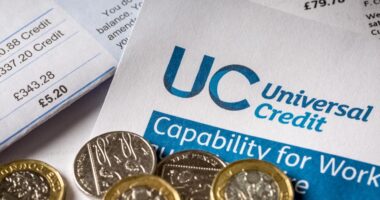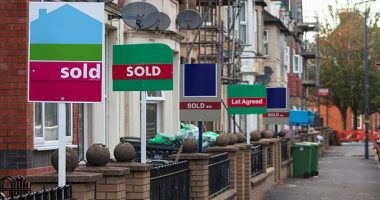MILLIONS of families could be forking out over £100 more for council tax from April, as more than half of councils plan to hike costs up.
Councils were given permission to raise council taxes from April in last year’s spending review, with extra cash raised earmarked to pay for rising police and social care costs.
This would mean households would have to foot £109 more on average for their bill.
According to the Local Government Chronicle, 53% of councils are looking to increase council tax by the maximum 5%.
Families who live in the Bristol City Council area could see their bills increase by the maximum amount, as well as those living in Kent County Council, East Riding of Yorkshire Council, West Sussex County Council and Lancashire County Council areas.
The bill hikes come as councils battle with spending budgets ravaged by the Covid crisis.
The Treasury has allowed councils to set their own budgets – up to a set amount – since the rules were changed in 2015.
They will be allowed to hike bills by 2% without holding a referendum for local people.
If they want to go above that, they will need to hold a vote.
Police and Crime Commissioners will be able to take an extra £15 a year.
And councils will also be able to charge an extra three per cent more to pay for social care in their area too.
The Treasury expects to get a windfall of nearly £2billion if every local authority takes up the extra cash.
But you could be paying more for your council tax bill anyway, according to Martin Lewis.
The MoneySavingExpert founder urged Brits to check their council tax band last month to see if they’ve been paying more than they should be.
As many as 400,000 homes are potentially in the wrong council tax band.
Martin tweeted a guide on how to check if you’re paying the right amount.
The first step is to check what council tax band your neighbours are on – you can then see if it matches your band.
You can check council bands online for free, so you don’t need to ask your neighbours in person if you’re not on friendly terms.
What help is available if you’re struggling to pay your council tax?
IF you are over the age of 18 and either own or rent your own home, you must pay council tax.
But there is help available if you’re struggling to pay your bill.
You get 25% off if:
You live on your own.
You also qualify for this discount if there is one adult and one student, or one adult and one person who is classed as severely mentally impaired.
You get 50% off if:
When working out how many people live in a property, some people are not counted – they are called “disregarded people”.
You can get a 50% discount if everyone in your home is “disregarded” from paying council tax.
For example, if there is a live-in carer and one person who is severely mentally impaired.
Check out the Citizens Advicewebsite for a full list.
You get 100% off if:
You’re living in an all-student household, or if you have a severe mental impairment and live alone or with a student.
A full reduction is also possible in households where someone under 18 is living with someone who is severely mentally impaired.
Claim benefits?
You could be entitled to a 100% reduction on your council tax bill if you receive certain benefits.
Check with your local council to see what help you can offer.
Own a second home?
You’ll usually have to pay council tax on an empty home.
But councils can give furnished second homes or holiday homes a discount of up to 50%.
Talk to your local authority to see what help they can offer.
Is there help during the coronavirus crisis?
Struggling households can also get their council tax bills reduced by up to £150 this year due to the coronavirus crisis.
The council tax hardship fund, which was first announced in March, is available to working-age people who get council tax support.
This is a benefit to help people who are on a low income or claiming certain benefits to pay their council tax bill.
Can I pause my payments?
A new scheme is launching this year that will see struggling households pause their payments for 60 days.
First announced in June 2019, the breathing space scheme will protect hard-up Brits from bailiffs and prosecution for two months.
The scheme won’t come into force until May 4, 2021.
Use the GOV.uk website to do this for houses in England, or the Scottish Assessors Association for properties in Scotland.
Finally, you’ll also need to work out how much your property was worth in 1991, as this is when council tax was launched by the government.
MoneySavingExpert has a free calculator tool to help you do this, as well as a table on what band you should have been put in.
If you want to go ahead with a challenge, you can contact the Valuation Office Agency (VOA) in England and Wales or the Scottish Assessors Association (SAA) in Scotland.
Meanwhile, millions of struggling households can get their council tax bills reduced by £150 this year due to the coronavirus crisis.
And you can pause council tax payments and other bills for 60 days under a new scheme launching May 4.
In February, the number of struggling people taking out individual voluntary arrangements (IVA) to help manage debts rose to an all-time high.


















